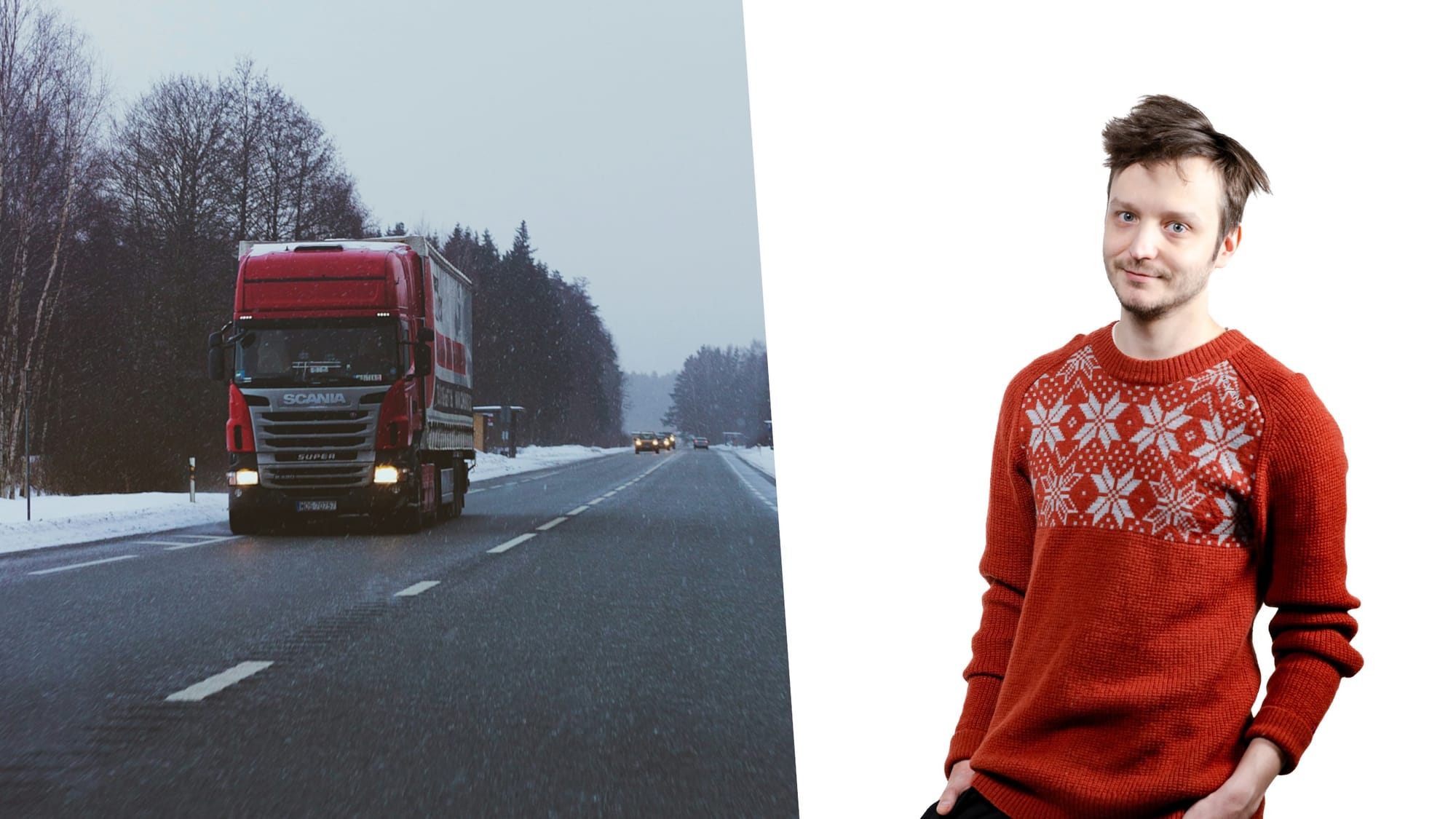Finland’s transport electrification needs a faster gear
Electrifying heavy transport is not progressing fast enough to secure independence from fossil-fuel producers, writes Alvar Külmäsu.

The electrification of Finland’s passenger car fleet is moving ahead, according to a recently published overview of electric road transport. Heavy transport is also picking up speed, but the current pace may not be enough to ensure foreign-policy independence or economic stability.
To shift into a high enough gear, state involvement and possibly a wealth tax are needed, as borrowing is off the table under Finland’s new debt brake.
The overview report shows that in the first nine months of 2025, out of the new and used imported passenger cars sold in Finland, 41 percent were fully electric. Electrification of vans and trucks is also gaining momentum.
The number of fully electric vans has risen to about 1,900 in a year, and the number of electric trucks has doubled to 189. Yet, proportionally, fully electric vans account for less than 20 percent of new vans sold in 2024, and electric trucks for less than 1 percent.
China electrifies heavy traffic with determination
These figures pale in comparison with other countries. In China, 25 percent of trucks sold in the first half of 2025 were fully electric.
Part of this surge likely stems from China’s drive to reduce dependence on global oil markets. China lacks its own crude oil production, and reliance on imported crude and refined products is at odds with its great-power ambitions. As a side note, these ambitions are not commendable.
China’s electrification of heavy trucks is bearing fruit. Diesel consumption there is expected to decline already this year, with an estimated drop of 6.3 percent.
Similar geopolitical motivations are not unique to China. Last year, reports from Ethiopia suggested the government was considering banning the import of internal combustion vehicles, driven purely by economic concerns: the country must buy oil products abroad, and at high cost in foreign currency.
Electrification as a path to self-sufficiency
Compared with these examples, the EU’s and Finland’s approaches to transport electrification seem timid. The issue is not only about climate but also about foreign-policy autonomy. The world’s largest oil exporters are still authoritarian states in the Middle East and Asia, notably Saudi Arabia and Iran with their ultra-conservative interpretations of Islam, and Russia with its authoritarian right-wing rule.
The political goals of these countries differ sharply from the EU’s commitment to democracy and freedom. Yet oil dependence makes it difficult for the EU to pursue its ambition of promoting democratic values abroad.
Oil dependence also creates acute risks of severe economic shocks. Russia, under heavy sanctions, still produces around 20 percent of the crude oil on global markets. A Russian defeat in the war it started against Ukraine – a desirable outcome – could also trigger domestic chaos and a temporary halt in oil production, causing a sharp spike in global oil prices.
The risks of oil markets spill directly into Europe
Given the EU’s, and especially Finland’s, lack of oil reserves, aggressively supporting the electrification of transport is vital for foreign-policy flexibility and economic resilience. The current pace is insufficient.
In Finland, the newly introduced debt brake ties the state’s hands. Unlike China, Middle Eastern countries or most private companies, Finland cannot use borrowing as leverage; the funds for transition must be found elsewhere.
One plausible option is a progressive wealth tax, widely used in Western Europe after the Second World War to help rebuild economies as quickly as possible.
The debate on transport electrification should expand beyond environmental and climate benefits. It is also about foreign-policy freedom and economic stability. Most oil-producing countries stand far from our political values. And one major producer is hopefully losing a war it started – which may nevertheless lead to a significant drop in global oil output.
Alvar Külmäsu
The author is a specialist in emergency medicine from Lahti, with interests in health policy, economics and alternatives to existing economic models.
Sources
Technology Industries of Finland: Electric Transport Overview 2025/Q3 (in Finnish)
Statistics Finland: First registrations of passenger cars by power source, 1990–2024
Reuters (11 July 2025): Soaring electric truck sales deal new blow to diesel use in China
CarExpert (5 Feb 2024): The African country that beat Europe to a petrol, diesel sales ban
Thomas Piketty: Capital and Ideology, Belknap Press, 2019





